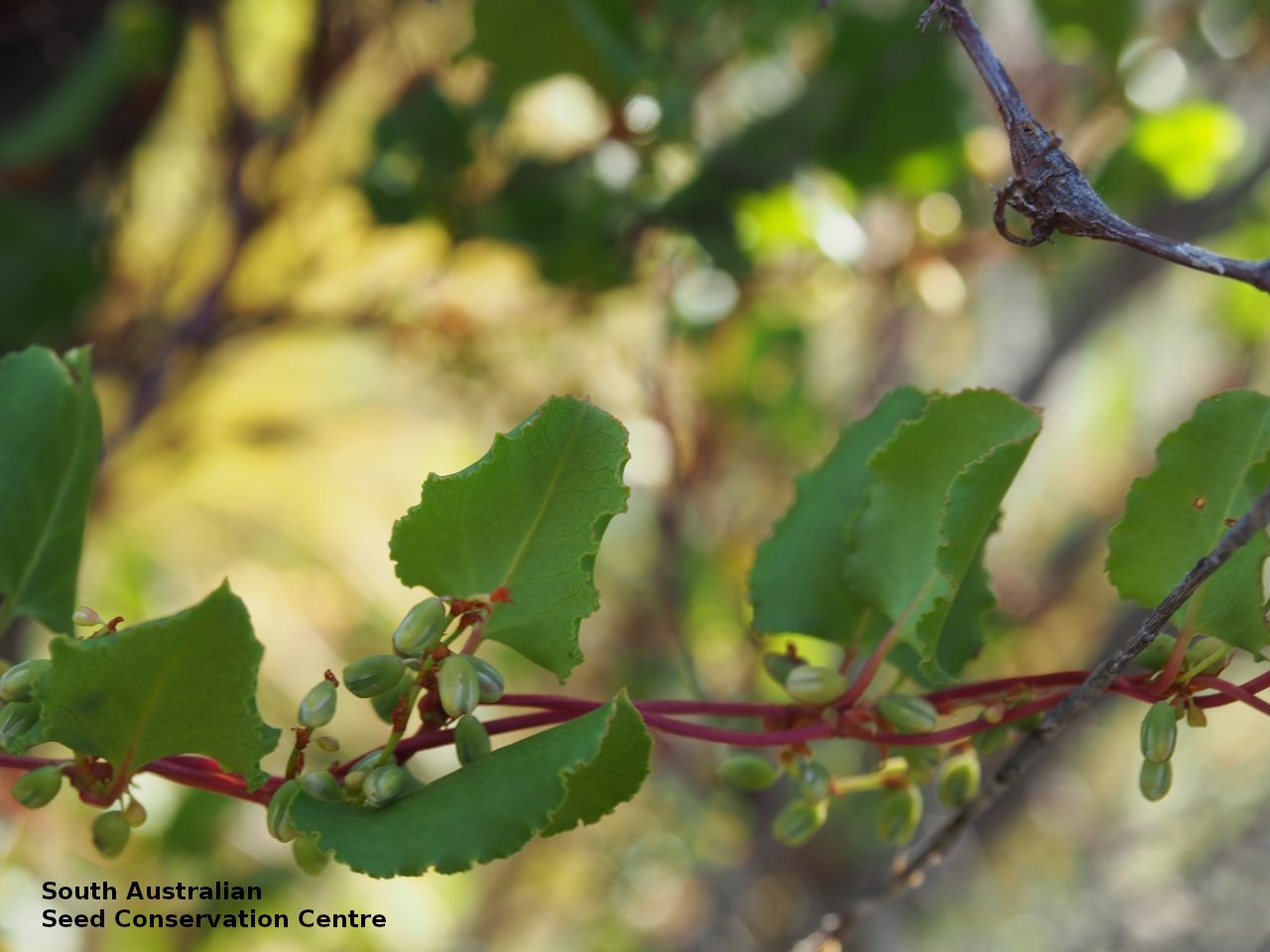
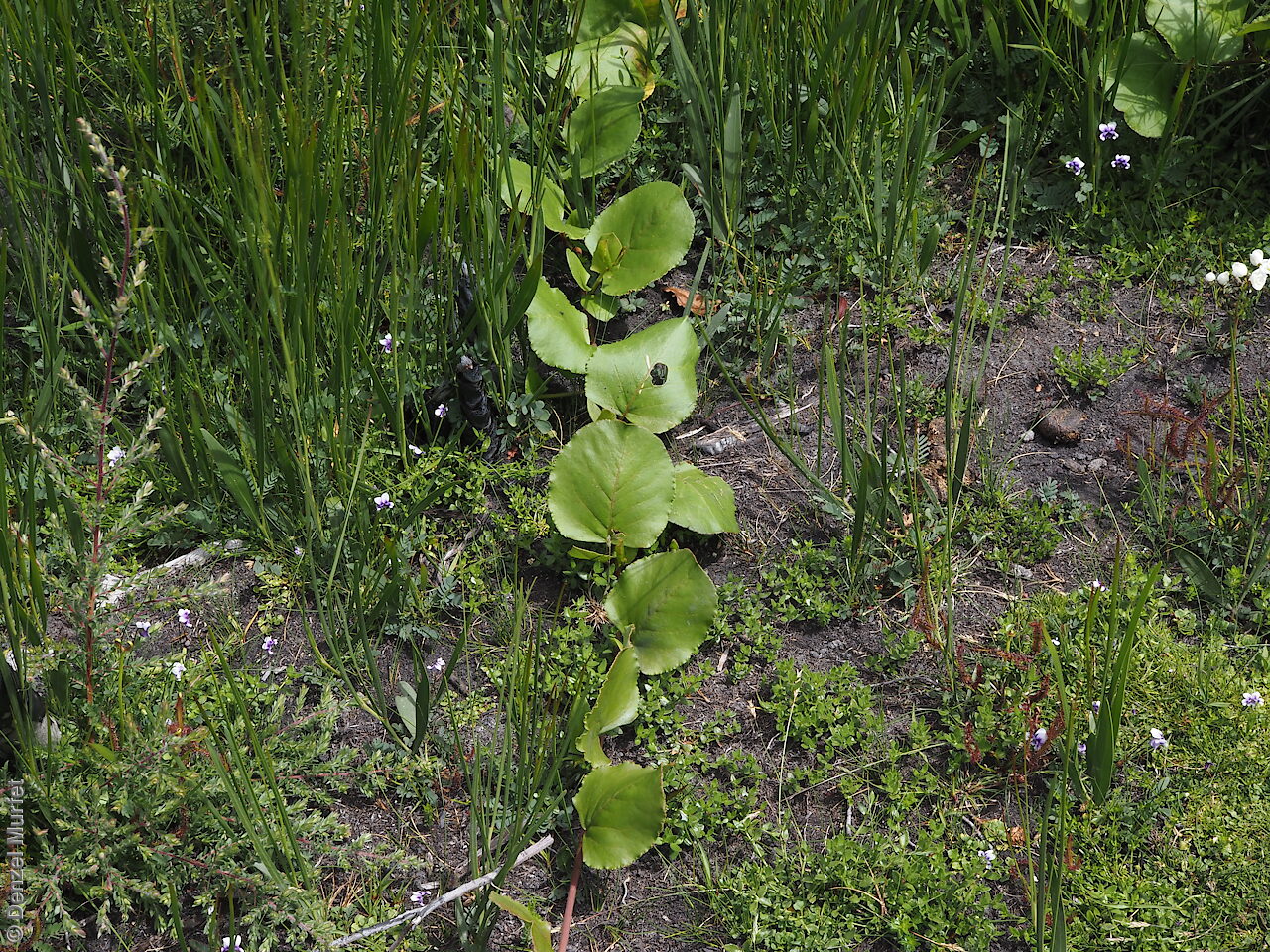
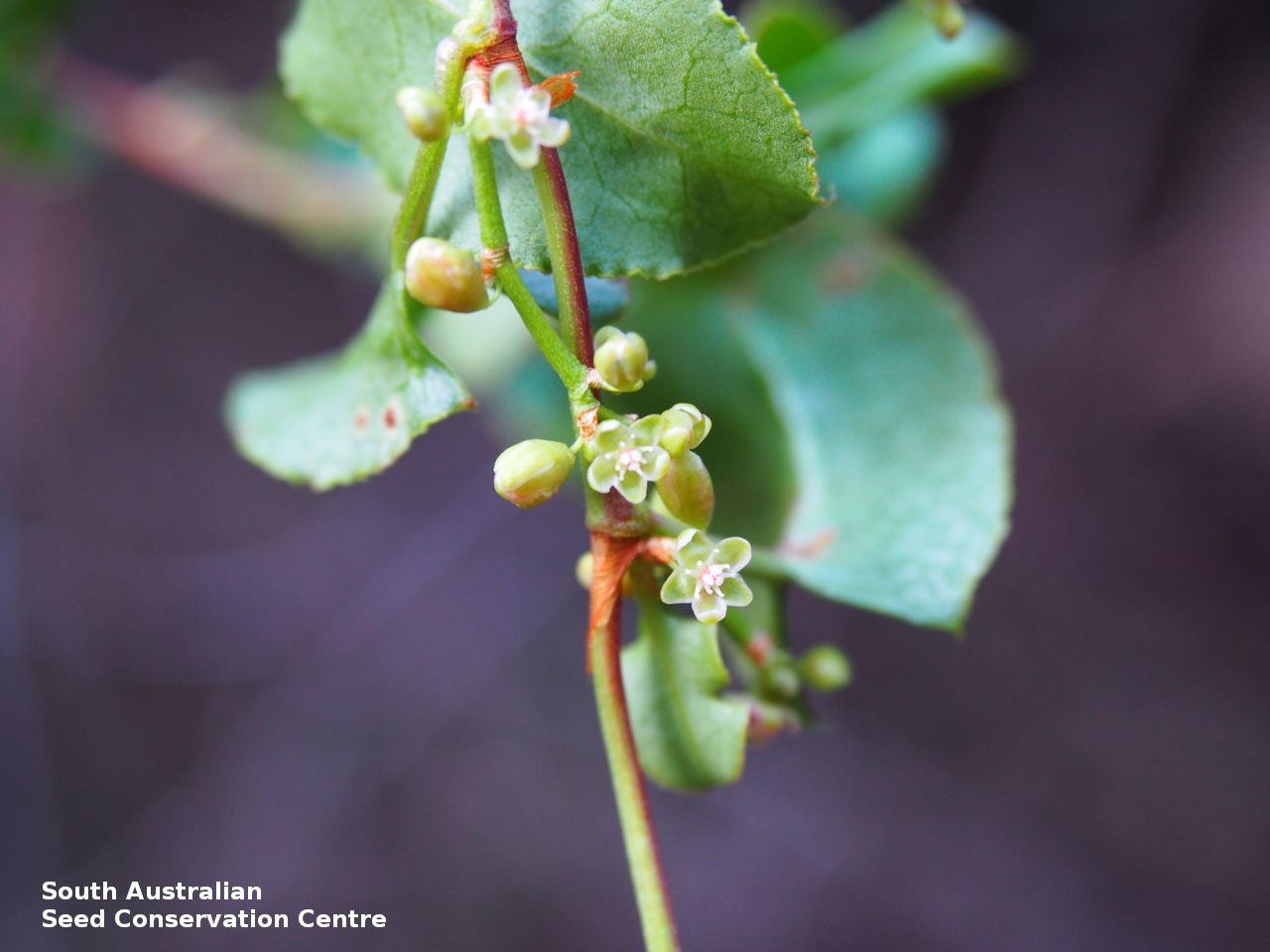

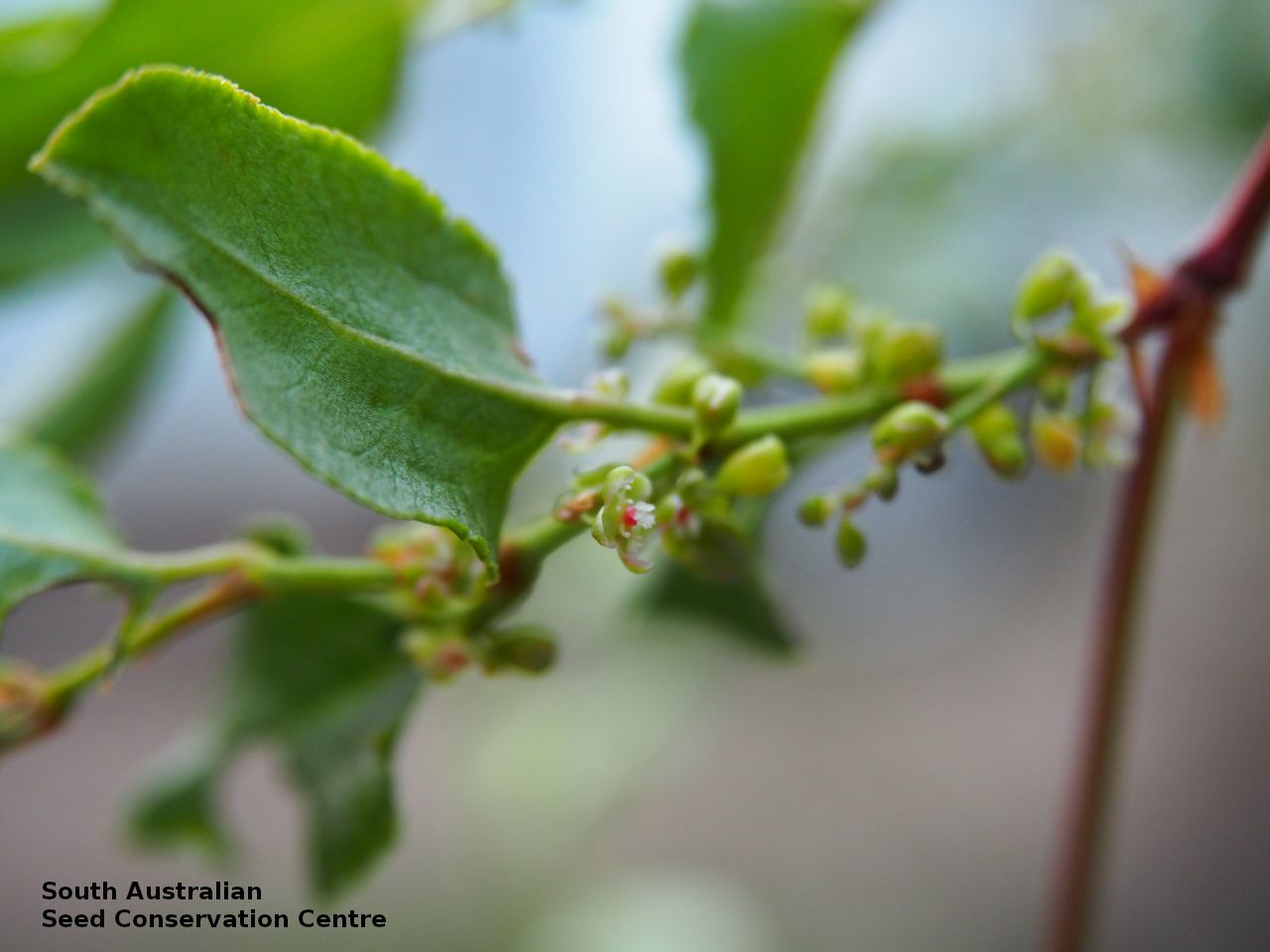
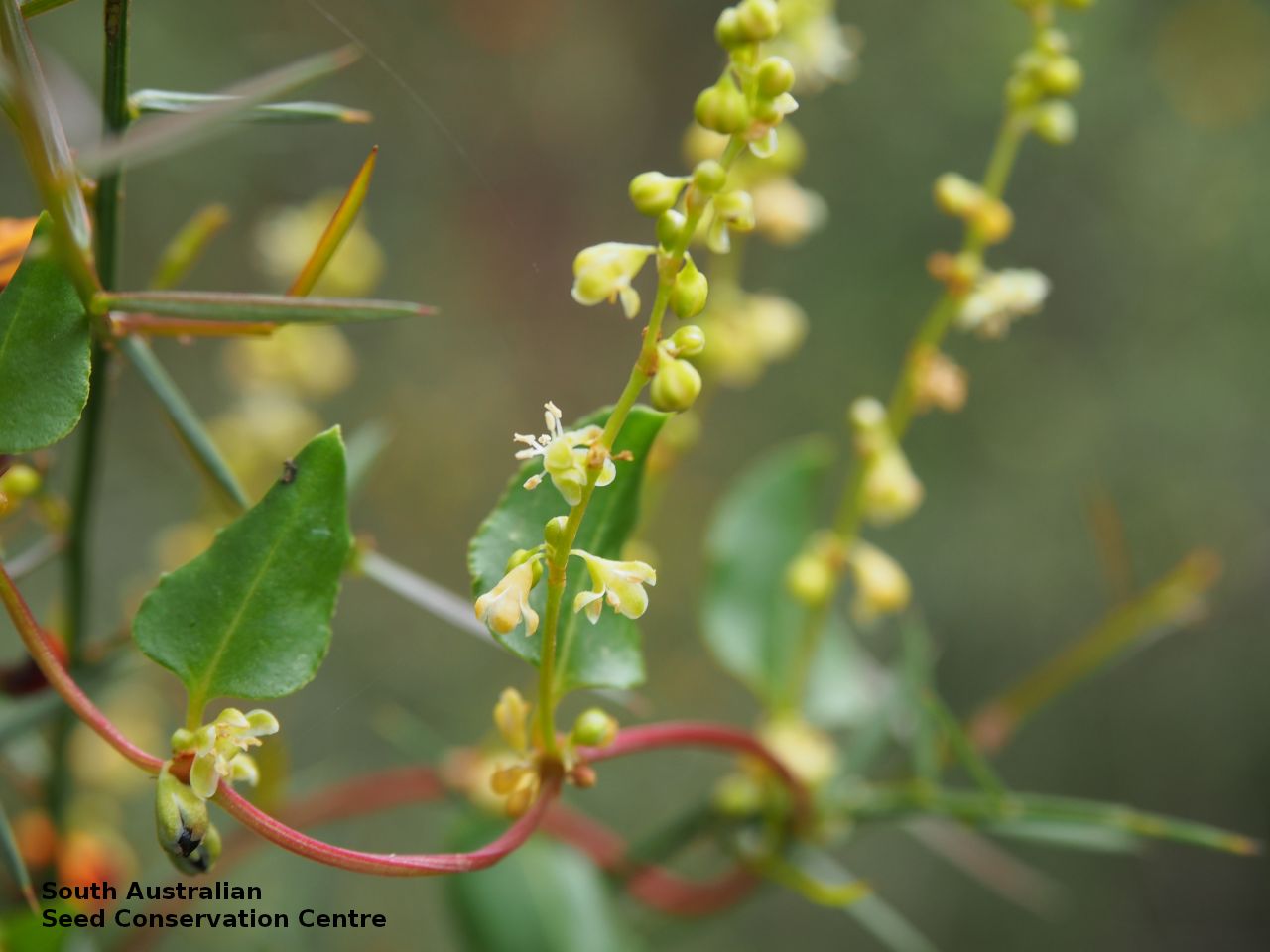
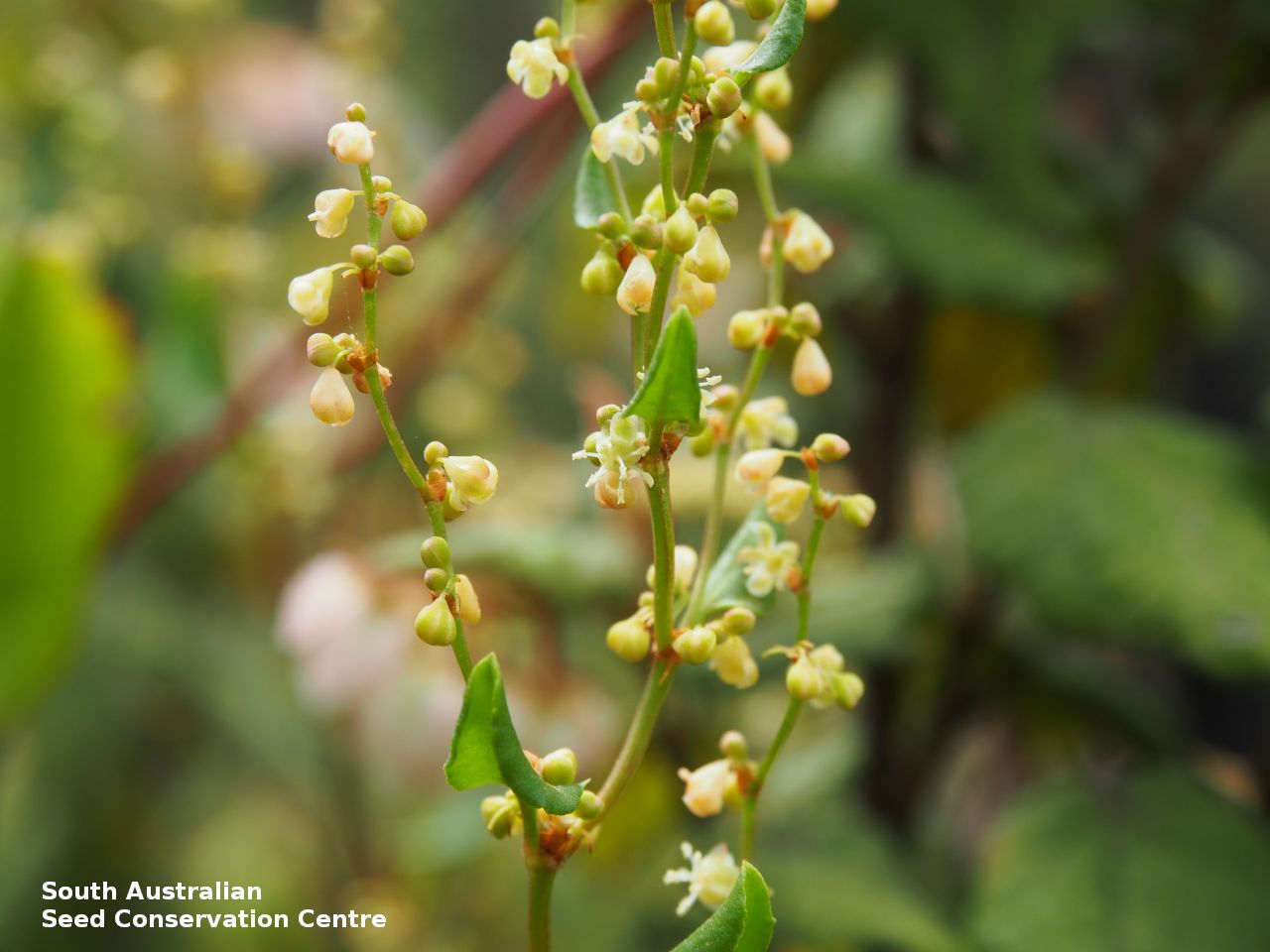
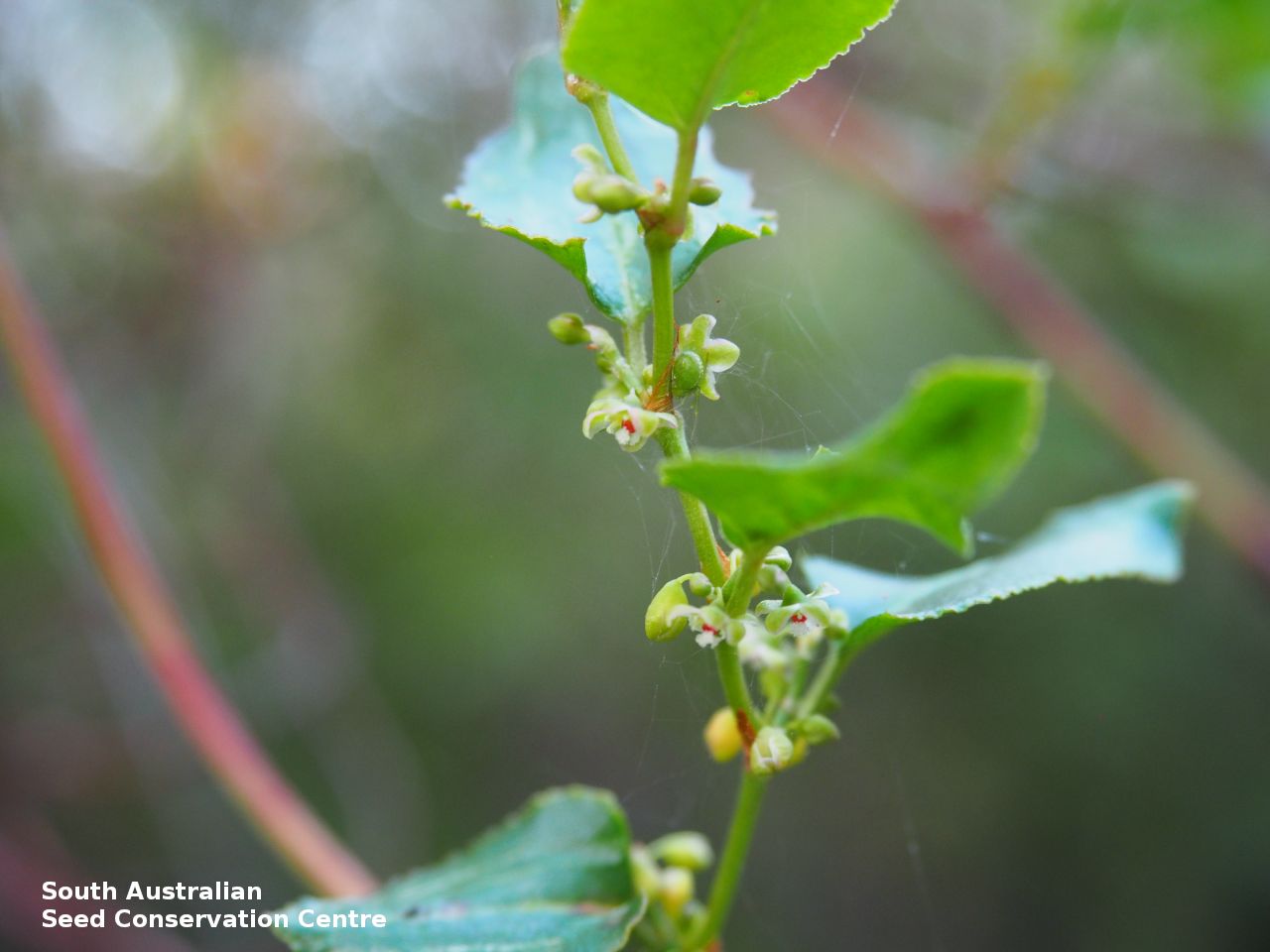
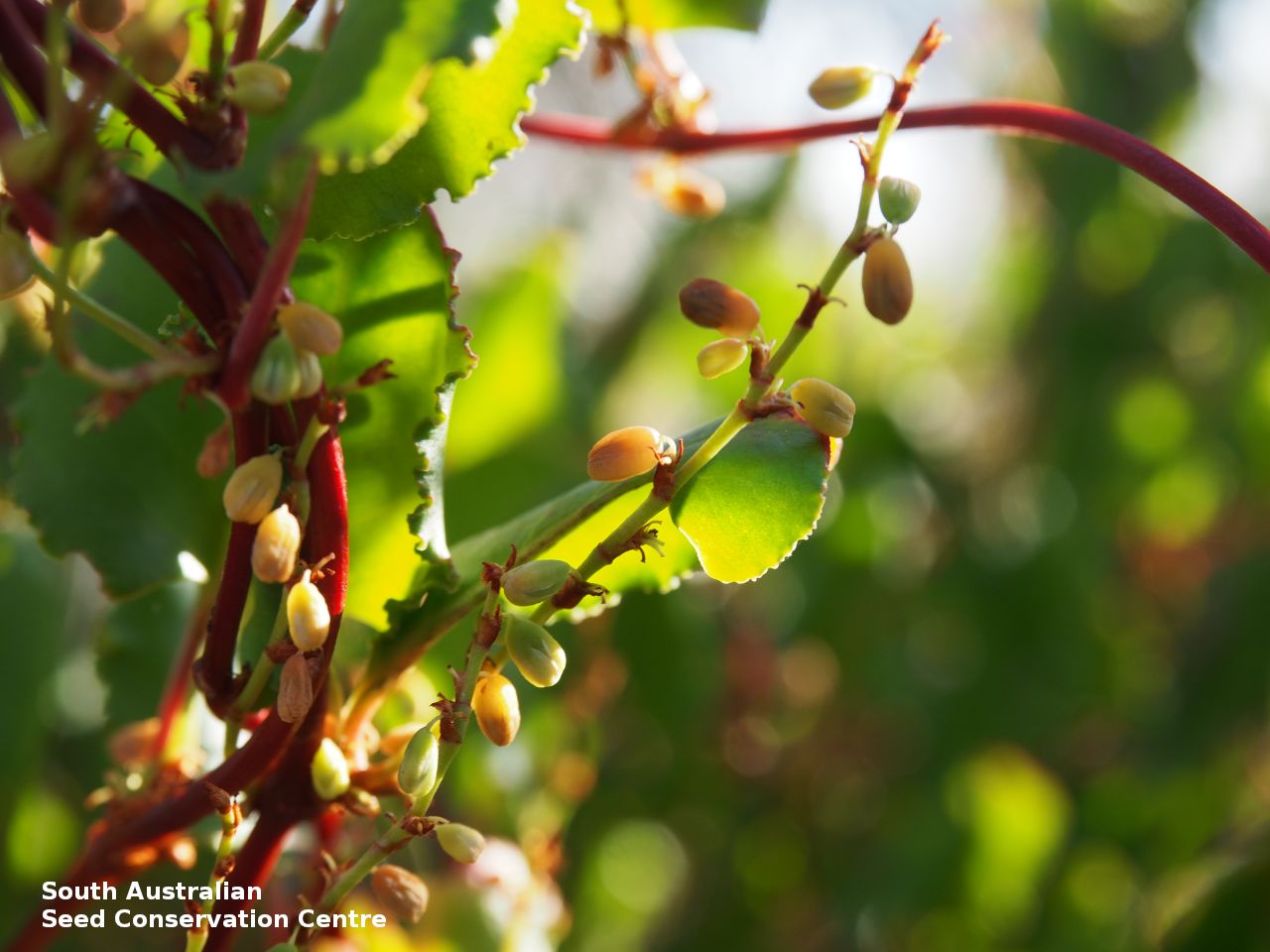
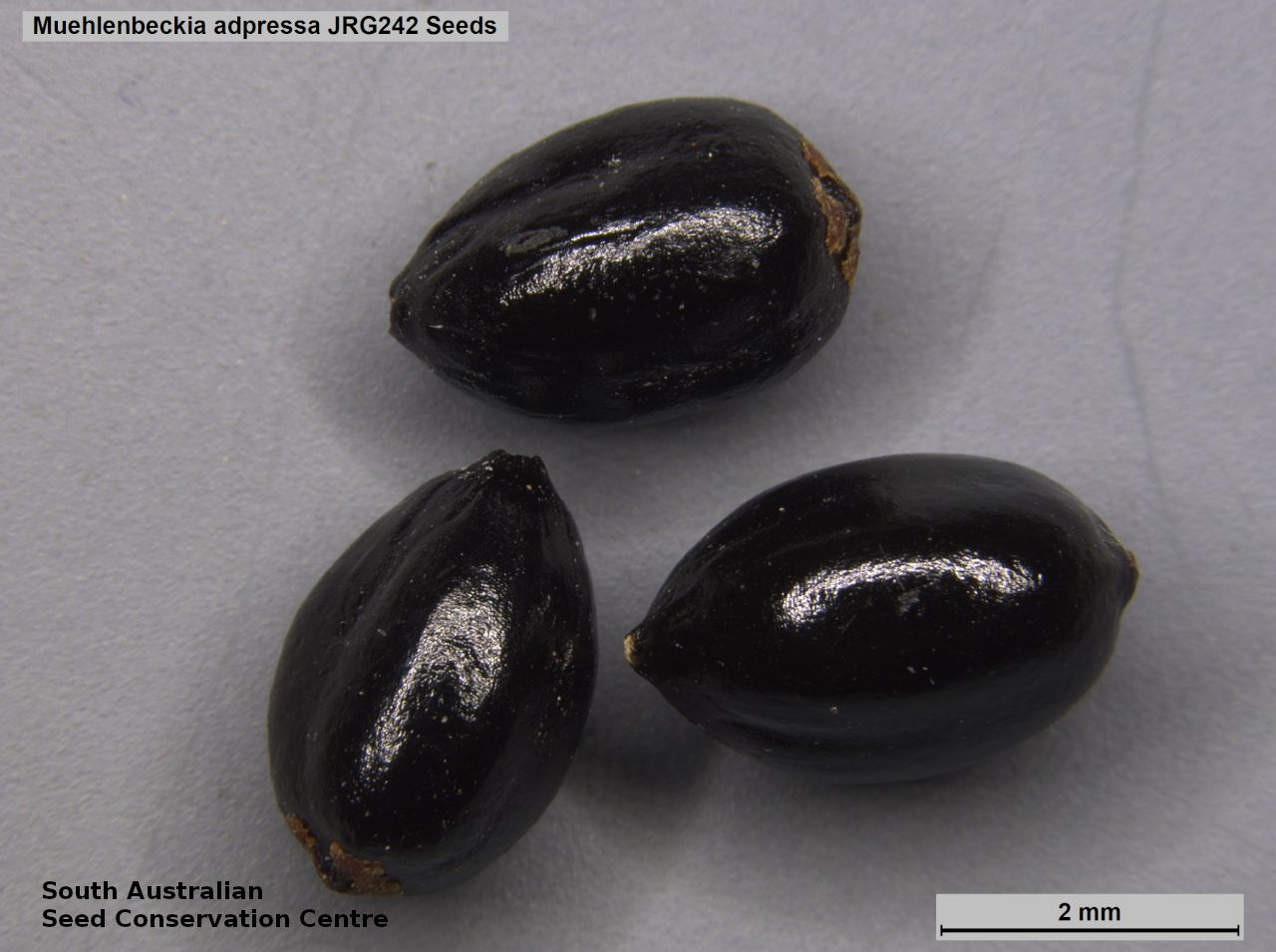

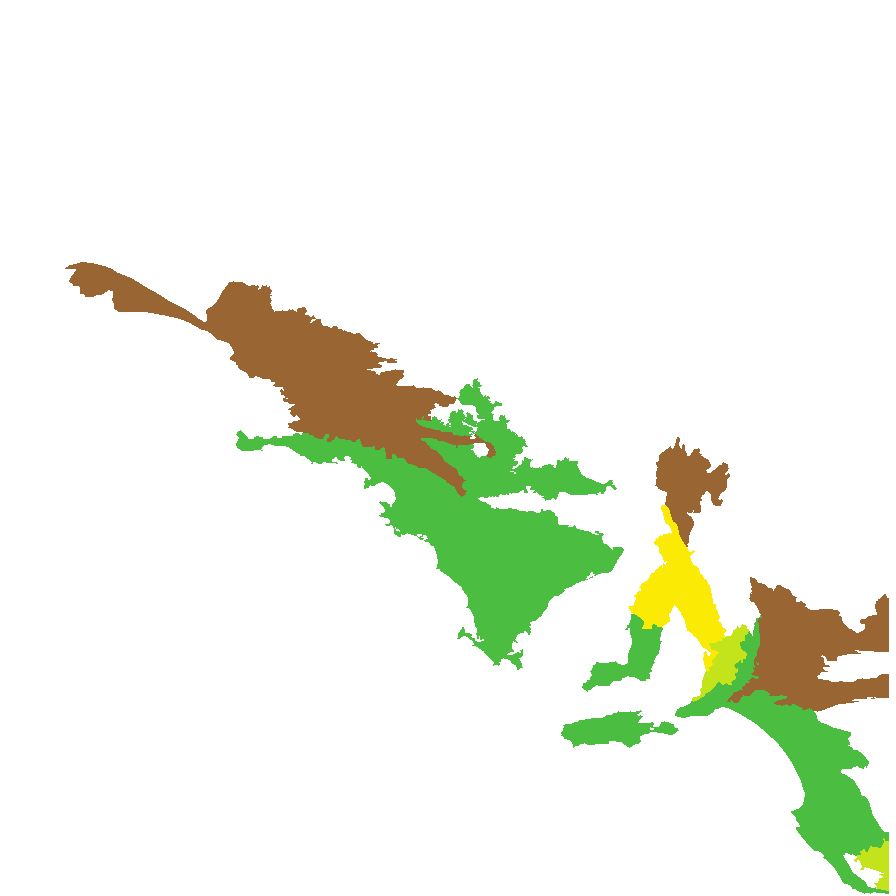
Botanical art
Prior names
Polygonum adpressum
Muehlenbeckia adpressa var. rotundifolia
Common names
Native Sarsparilla
Climbing Lignum
Etymology
Muehlenbeckia, named after Henri Gustav Muehlenbeck (1798-1845), an Alsatian physician and botanist who investigated the flora of Alsace.
Distribution and status
Found in the southern part of South Australia, from Eyre Peninsula to the southeast growing along the coast, behind beaches and on cliff-tops. Also found in Western Australia, New South Wales, Victoria and Tasmania. Native. Common in South Australia. rare in New South Wales. common in the other States.
Herbarium regions: Eyre Peninsula, Northern Lofty, Murray, Yorke Peninsula, Southern Lofty, Kangaroo Island, South Eastern, Green Adelaide
AVH map: SA distribution map (external link)
Plant description
Prostrate or twining low shrub with slender stems to 1 m long; red-brown, winged or striate. Leaves to 6 cm long and 35 mm wide; semicircular to oblong-ovate; glabrous, margins mostly crisped. Inflorescences spread evenly along branches. Flowers somewhat fleshy, green-yellow. Seed embryo type is peripheral.
Seed collection and propagation
Collect ripening fruits containing a hard seed. Place fruits in a bucket of water and leave to soak overnight. then rub the fruit to remove the flesh. Rub and change the water a few times until all the fresh is removed. Leave the cleaned seed to dry and then store with a desiccant such as dried silica beads or dry rice, in an air tight container in a cool and dry place. Seeds are non-dormant. Viable seed should germinate readily.
| Location | No. of seeds (weight grams) | Number of plants | Date collected | Collection number Collection location | Date stored | % Viability | Storage temperature |
|---|---|---|---|---|---|---|---|
| MSB | 1,500 (5.5 g) | 30 | 23-Jan-2007 | DJD751 Kangaroo Island | |||
| BGA | 3,260 (14.36 g) | 16-Nov-2015 | JRG242 Kangaroo Island | 24-Apr-2019 | 85% | -18°C |
Number of plants: This is the number of plants from which the seeds were collected.
Collection location: The Herbarium of South Australia's region name.
% Viability: Percentage of filled healthy seeds determined by a cut test or x-ray.